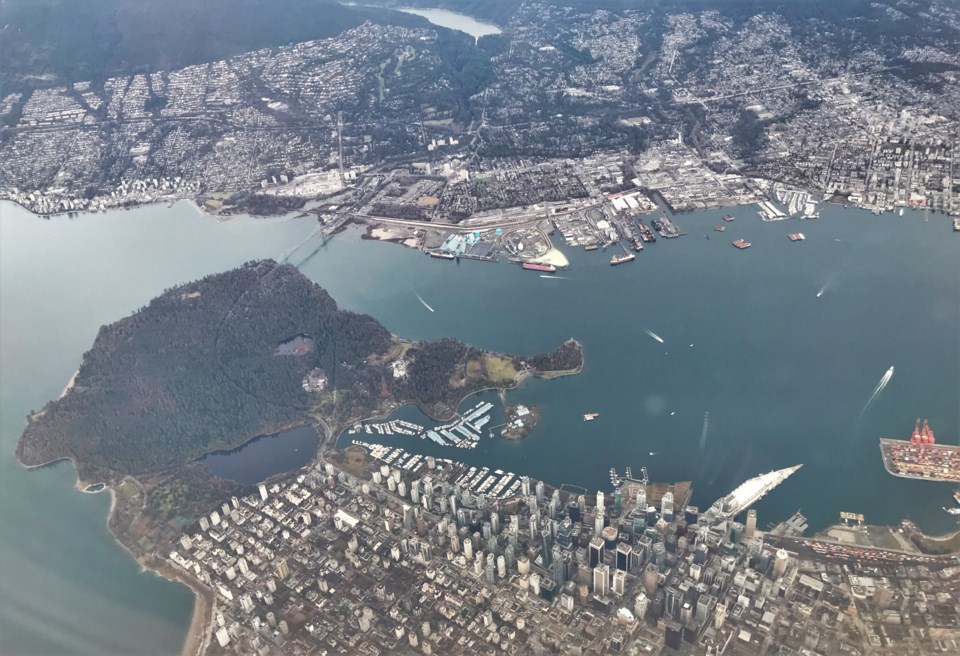Generally, seasons are defined by certain climate conditions. Traditionally, there are four: fall, summer, winter, and spring.
That's what people generally refer to in North America, but does that line up with what Vancouver experiences? What about June-uary? And where's the real border between fall and winter?
"You could think of it as there are four seasons, but early and late of each season has a different flavour," says Environment Canada meteorologist Alyssa Charbonneau.
And how they all line up doesn't necessarily match up to calendars.
Storm season
To break down the different periods throughout the year, it's easiest to start with the stormy season, which doesn't really line up well with the calendar as it starts in October, generally speaking.
"There's the typical storm season we think of here on the west coast of B.C.," explains Charbonneau. "It starts in October and lasts to January."
November, December and January are the three wettest months of the year, she adds, and that's when Vancouver gets a parade of storms sweeping in from the Pacific. Almost all of the major historical storms happen within these months (think of 2021's atmospheric rivers, the 2006 wind storm or the Blizzard of '96). While October is a bit drier, it (typically) marks the beginning of the storm season.
Quiet winter and the shoulder season
While February is still part of the winter, it's the "quiet winter" Charbonneau says, with cold temperatures and snow still a possibility, followed by a long shoulder season.
"It's not fair weather, but the intensity of the storms tends to ease off toward the end of winter and early spring," says Charbonneau.
It's marked by slowly rising temperatures, as well, and daylight lasting a bit longer.
Late spring aka pre-summer
"Then that's followed by that later spring period where we can often see stretches of fairly nice weather," she adds.
This later spring is in April and May, where there will be streaks of beautiful, warm weather that get people thinking about summer. Outdoor sports are getting back in full swing, snow is completely out of mind, and the flora and fauna are more active.
By the May long weekend, camping is back on the menu and temperatures can be touching the 20s, not far from the average highs of the year. At the same time days are getting significantly longer; daylight on May 12 is more than three-and-a-half hours longer than March 12.
"It feels like summer is here," she notes. of this Vancouver season
June-uary
That's when June-uary hits.
What's interesting here, Charbonneau explains, is that June is warmer and drier than May, but the perception is that it's wetter and cooler.
She chalks that up to the late spring weather including long streaks of nice weather with rainy, cooler days as well, whereas June has lots of showery, unsettled, cool days, without getting too cold.
"When there are cool temperatures, it makes it feel like 'Where is our summer?'" she notes.
Real summer
"Then summer does arrive," says Charbonneau. "That's when it's typically quite dry here on the south coast."
July and August are full of long days, (mostly) dry skies, and the warmest days of the year as Vancouver sheds its Raincouver persona and puts on postcard-worthy weather. And that can stretch well into September (or October, as we saw in 2022).
While the weather is nice, Charbonneau notes drought can become a concern if summer lasts longer than normal.
Back to storm season
On a calendar, fall is three months, but there's often a sharp change.
"Early fall can still be quite dry and pleasant, temperate," says Charbonneau. "Late fall is quite stormy."
"Late fall and early winter are together in that way," she adds.
While the leaves may take some time to change, the fall (usually) sees a dramatic shift as storm season arrives.
"It happens quickly, and once you're into the storm cycle you're into the winter," says Charbonneau. "This year we didn't have any fall, we were straight into winter."
A disclaimer of sorts
Each year the weather throws as many knuckleballs as anything else, and while the seasons typically follow a certain pattern it's not a certainty. 2022 was a good example of that.
"Just because we have this climatological norm it doesn't always work out that way," says Charbonneau.
That said, for those looking for something simpler, Charbonneau has an essentially two-season version, with just the stormy times and the summer. Everything else is shoulder season, ramping up to or down from those two.




